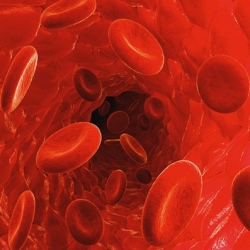
Researchers have unearthed what they are calling a ‘marvel molecule.’ Said to be capable of suppressing a key activator of various inflammatory diseases, it is hoped it will lead to treatments for Alzheimer’s disease, rheumatoid arthritis and motor neuron disease.
The massive potential of the molecule lies in its ability to block a key activator of inflammatory diseases known as the NLRP3 inflammasome. Inflammasomes, protein clusters responsible for triggering a range of inflammatory processes, have long been considered potential therapeutic targets for treating a range of conditions.
Through the study, the researchers found the molecule, dubbed MCC950, to be very promising in warding off multiple sclerosis. But what really pleased the researchers was the fact that the target, the NLRP3 inflammasome, also plays a strong role in the onset of other inflammatory diseases including Alzheimer’s, atherosclerosis, gout and Parkinson’s disease.
"MCC950 is blocking what was suspected to be a key process in inflammation," says Dr Rebecca Coll, lead author of the paper. "There is huge interest in NLRP3 both among medical researchers and pharmaceutical companies and we feel our work makes a significant contribution to the efforts to find new medicines to limit it."
The findings are said to confirm that while different inflammatory conditions may cause different parts of the body to become inflamed, the diseases all share a common process. This has the potential to spawn new kinds of cheaper, non-invasive treatments for inflammatory diseases.
"MCC950 is able to be given orally and will be cheaper to produce than current protein-based treatments, which are given daily, weekly, or monthly by injection," says Professor Matt Cooper from the University of Queensland, a co-senior author of the study. "Importantly, it will also have a shorter duration in the body, allowing clinicians to stop the anti-inflammatory action of the drug if the patient ever needed to switch their immune response back to 100 percent in order to clear an infection.”
